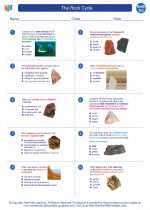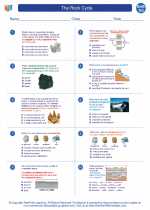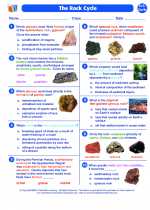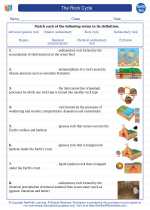Environmental Science
Environmental science is the study of the interactions between the physical, chemical, and biological components of the environment, including the impact of human activities on these components. It encompasses a variety of fields including biology, chemistry, physics, geology, and ecology.
Key Concepts in Environmental Science
- Ecosystems: Understanding the structure and function of ecosystems, including the interactions between biotic and abiotic components.
- Biodiversity: Exploring the variety of life forms on Earth and the importance of preserving and protecting this diversity.
- Climate Change: Investigating the causes and effects of climate change, including the role of greenhouse gases and human activities.
- Resource Management: Examining the sustainable use and conservation of natural resources, such as water, air, soil, and minerals.
- Pollution: Analyzing the sources, impacts, and mitigation of pollution in air, water, and soil.
- Sustainability: Assessing the ability of current and future generations to meet their needs without compromising the environment.
Study Guide
To excel in environmental science, it's important to grasp the fundamental principles and engage in hands-on learning experiences. Here are some key study tips:
Understand Ecosystems
Learn about the structure of ecosystems, including producers, consumers, and decomposers. Understand energy flow and nutrient cycling within ecosystems.
Explore Biodiversity
Research the different levels of biodiversity (genetic, species, and ecosystem diversity) and their significance. Understand the threats to biodiversity and the importance of conservation efforts.
Investigate Climate Change
Study the greenhouse effect, the role of human activities in climate change, and potential solutions to mitigate its impact. Stay updated on current research and developments in climate science.
Manage Resources Sustainably
Examine the principles of sustainable resource management, including renewable and non-renewable resources. Understand the concept of carrying capacity and its implications for resource use.
Address Pollution
Explore the different types of pollution and their sources. Learn about the impact of pollution on ecosystems and human health, and investigate strategies for pollution control and prevention.
Embrace Sustainability
Engage with case studies and examples of sustainable practices in agriculture, urban planning, and energy production. Consider the social, economic, and environmental dimensions of sustainability.
By mastering these key concepts and study strategies, you can develop a deep understanding of environmental science and its relevance to the world around us.
.◂Earth Science Worksheets and Study Guides High School. The Rock Cycle

 Worksheet/Answer key
Worksheet/Answer key
 Worksheet/Answer key
Worksheet/Answer key
 Worksheet/Answer key
Worksheet/Answer key
 Vocabulary/Answer key
Vocabulary/Answer key
 Vocabulary/Answer key
Vocabulary/Answer key
 Vocabulary/Answer key
Vocabulary/Answer key
